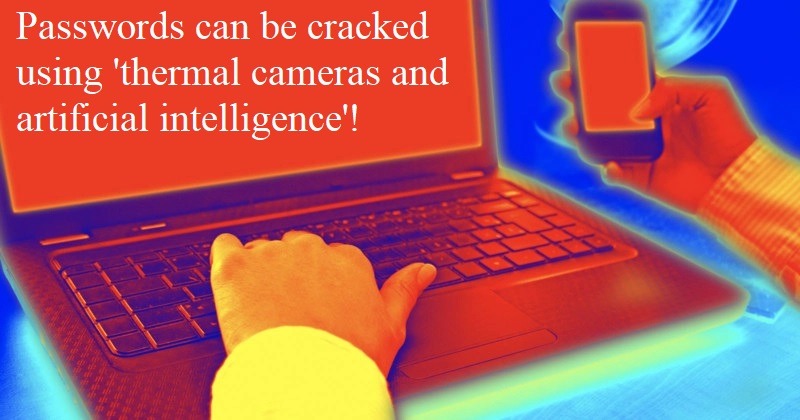
Experts have issued a warning that thieves may employ heat-detecting cameras to decipher passwords. According to research, these cameras can aid in password cracking for up to a minute after entering. According to Bloomberg, scientists at the University of Glasgow created a technology called ThermoSecure System that used heat pictures and artificial intelligence to generate ‘educated guesses’ about what the password may be.
According to Mohamed Khamis of the School of Computing Science at the Scottish university, you must ‘think like a thief to catch a thief’. He said, ‘Thinking carefully about how bad actors can utilise thermal photos to hack into PCs and cellphones, our team created ThermoSecure’. The journal ACM Transactions on Privacy and Security has published their findings.
How often may passwords be broken?
‘Quite often’ is the two-word response. Approximately 86% of the passwords were successfully cracked by the system when a thermal picture was clicked within 20 seconds of entering the secret code or password. It even deciphered lengthy passwords that were approximately 16 characters in length. However, this had a lower success rate of only 67%.
Passwords that were shorter had a better success rate. Eight characters were correctly decoded on 82% of attempts, eight characters correctly decoded on 93% of efforts, and six character codes were decoded on 100% of attempts. The success rate decreased to 76% when the time was extended by 10 seconds, and it further decreased to 62% when 60 seconds had passed since the thermal image had been snapped.
How does it act?
A tiny amount of our body heat is transferred when we contact anything. These locations seem a little bit brighter in the image when thermal imaging detect this heat. Any bystander with a thermal camera may take a picture that shows the heat signature if the user fills in their password and leaves the gadget alone. This ‘heat assault’ might then reveal your codes, passwords, and other information.

Post Your Comments